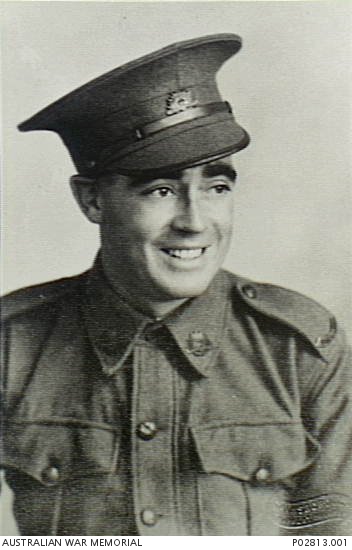Note: this speech was delivered by Brigadier Andrew Harrison as part of the National Sandakan Remembrance Day Wreathlaying Ceremony 2018 at the Australian War Memorial.
Last Saturday, a third of the globe’s population paused and watched, captivated, as a soldier from the town of Windsor, deeply in love, married his bride. Glorious spring sunshine illuminated the pageantry of his home town, and the world smiled as a dream came true.
But sometimes nightmares, beyond our worst imagination, will leave an even more indelible memory. At this time 73 years ago, the emaciated figure of another brave Windsor boy lay dying beside a jungle track, 23 miles from Sandakan. Nobody knows how Tom spent his last few minutes, perhaps mercifully fading into unconsciousness or perhaps ruthlessly dispatched by his guards. All we know is he died. And he has no known grave.
Private Tom O’Rourke and Prince Harry came from two Windsors, literally a world apart. Tom, serving in the Australian Army Service Corps, was born in Windsor, Victoria State in 1919. He had last seen his mother and father, Emily and Jack, as they waved him off to war 38 months earlier. Thirty-four of those months he spent in captivity, finally ending up alongside 1,780 Australian and 658 British brothers-in-arms at the notorious Sandakan prison camp in North Borneo.
Across Windsor and other British towns, the brutal history of Sandakan isn’t all that well known; none of our boys came home to tell their story.
And only six Australians survived the barbaric Sandakan Death Marches. Forced marches that became a byword for pitiless, merciless, cruelty.
Servicemen from both our nations suffered unimaginable horrors during the course of those three marches. Overloaded with their captors’ rice and ammunition, they were forced to walk, often barefoot, the two hundred and sixty jungle kilometres from Sandakan to Ranau. Those who fell behind were beheaded, shot – or worse. Systematic beatings, illness and starvation conspired to take an inevitable toll on the remainder. Yet, despite these appalling conditions, six Australians, including Richard Moxham’s father, escaped.
Private Nelson Short, another of the escapees, said afterwards,
“…if the blokes just couldn’t go on we shook hands with them and said, you know, hope everything’s all right. But they knew what was going to happen. There was nothing you could do.”
For Tom and the others… ‘there was nothing you could do’.
2,438 souls. 35 young men with the surname ‘Smith’, 8 ‘Campbells’, 4 ‘Davies’ and even a Private Molan perished on that track.
At this this time eighteen years ago I was suffering my own bleak captivity and relentless beatings in fetid jungle camps. But I haven’t the smallest inkling of what those poor men must have gone through in the desperate years and months before they died.
In the full knowledge that their plight was hopeless, these men – almost incredibly – managed to keep a flame of hope alive. And that tenuous, fragile spark of spirit was occasionally enough. When a fleeting chance of escape came, a lucky few seized it.
And so today, we commemorate our fallen countrymen, Australian and British alike. They suffered and died alongside each other. Let us also celebrate that triumph of the spirit, the unconquerable will to survive that doesn’t give up, that never quits – even when ‘there is nothing you can do’. Sometimes all that is left, is the refusal to give up.
And sometimes, just sometimes, that is enough.

